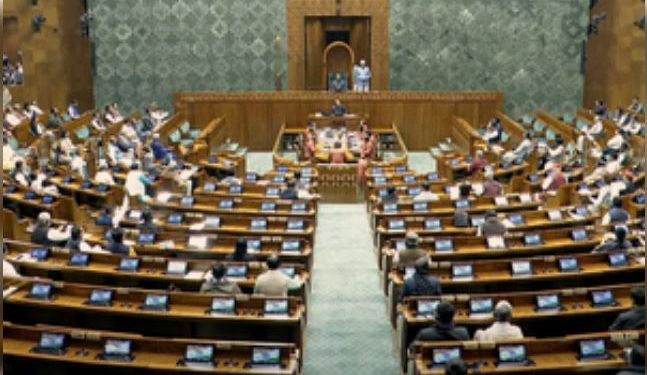New Delhi: The parliamentary committee has pulled up the Department of Empowerment of Persons with Disabilities (DEPwD) for persistent underutilisation of funds and reduced physical targets across key schemes for persons with disabilities, warning that such lapses risk undermining their welfare.
The 13th report of the Standing Committee on Social Justice and Empowerment, tabled in Parliament Thursday, reviewed government action on its earlier recommendations related to the 2025–26 Demands for Grants.
While the panel welcomed some corrective steps, it said several replies from the government were “unsatisfactory” and required reiteration.
The committee expressed concern that fund utilisation remained inconsistent across flagship schemes such as the Assistance to Disabled Persons for Purchase/Fitting of Aids and Appliances (ADIP), the Scheme for Implementation of Persons with Disabilities Act (SIPDA), the Deendayal Disabled Rehabilitation Scheme (DDRS) and scholarships.
In 2024–25, less than 40% of SIPDA’s revised allocation was spent, with significant sums returned due to procedural delays.
“This is a recurring pattern observed over the past three years,” the panel noted, adding that structural issues like weak coordination with states and delayed approvals were not being adequately addressed.
On the ADIP scheme, which provides assistive devices, the committee flagged a steep drop in beneficiaries last year and criticised the reduction of physical targets for 2025–26. It asked the ministry to base future targets on “granular assessments of regional needs” rather than budgetary constraints alone.
The panel also raised alarms over rehabilitation services under DDRS, where targets were scaled back from 40,000 to 32,000 beneficiaries, and only 74 of 325 planned District Disability Rehabilitation Centres remain functional. It urged strict enforcement of new rules to fast-track approvals and avoid duplication of services.
The committee was equally dissatisfied with SIPDA’s performance, citing repeated mismatches between allocations, revised estimates and actual expenditure. It recommended instituting a real-time tracking system through the Central Project Monitoring Unit (CPMU) to monitor proposals and fund flow.
On accessibility, the panel welcomed the inclusion of the Accessible India Campaign in SIPDA but warned that the absence of a dedicated financial framework for barrier-free infrastructure could slow progress.
It asked the government to create a “long-term, outcome-oriented roadmap” with specific allocations.
The report also touched upon scholarships, where allocations and coverage dipped sharply in 2024–25 despite high demand in previous years.
It recommended stronger forecasting, AI-based verification tools and streamlined disbursements to avoid delays.
While acknowledging improvements such as automated proposal forwarding, greater CSR involvement and expanded assistive technology partnerships with IITs and ISRO, the committee stressed that “procedural reforms alone will not suffice.”
It called for more data-driven planning and stronger accountability to ensure that “allocated resources effectively advance the welfare of persons with disabilities.”
PTI






































